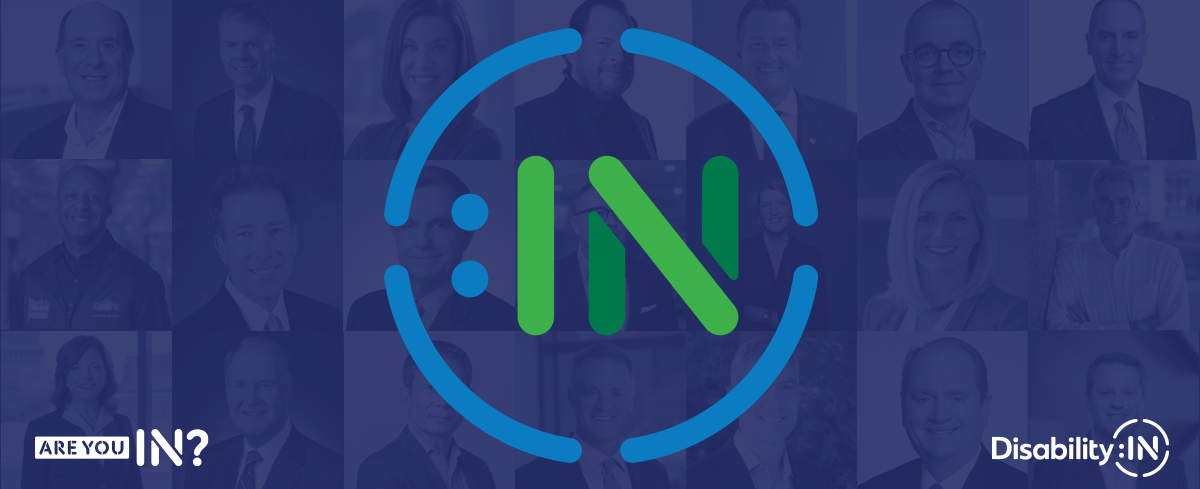
From Jill Houghton, Disability:IN President & CEO
We just wrapped up our 24th annual global Disability:IN conference, or what we call our family reunion. Not even a global pandemic could keep us away from each other. In fact, the pandemic has brought us closer together and we gathered with over 4,000 business leaders with disabilities along with allies from nearly 50 countries.
A couple of my personal highlights from this year’s conference:
- Receiving an email from Bristol Myers Squibb that they extended a job offer to a Disability:IN NextGen Leader and the individual accepted.
- 515 NextGen Leaders engaged in Matchmaking with Disability:IN partners that will lead to internship and career opportunities.
- 300+ certified Disability-Owned Business Enterprise (DOBE) participated in matchmaking with corporate partners that could lead to contract opportunities.
- Recognizing 11 Inclusion Award winners, including Salesforce.com as Employer of the Year
- Publishing the 7th Disability Equality Index (DEI) with 272 Top-Scoring Companies in partnership with the American Association of People with Disabilities (AAPD)
Companies, too, have become more conscious about creating safe and culturally engaged workplaces, marketplaces and supply chains. Our DEI found that the most disability-inclusive companies are actually benefiting from having implemented the changes disabled workers want and are demanding. By increasing benefits and providing accommodations, inclusive companies have stayed competitive and are able to attract new talent.
- Enterprise-Wide Access: 82% of DEI businesses are committed to ensuring individuals with disabilities can access digital content, but only 59% of participating companies have a requirement to ensure digital products are accessible and usable to employees with disabilities.
- Employment, Education, Retention & Advancement: 79% of businesses have retention and advancement programs focused on or inclusive of employees with disabilities, but only 48% have a written retention and advancement statement that includes disability.
- Culture: Although disclosure is tied to job satisfaction and engagement, only 5% of employees on average disclose their disability.
If you’re a company leader looking to build out your disability inclusion roadmap, here’s what I suggest:
- Make sure you have a Disability Employee Resource Group and that it’s championed by a senior executive. Assemble a cross-functional team from across the business to join the ERG.
- Read our 2021 DEI findings to benchmark your efforts and accelerate measurable, tangible actions towards disability inclusion and equality across leadership and culture; enterprise-wide access; employment practices; community engagement; supplier diversity; and non-U.S. operations.
- Register now for the 2022 Disability Equality Index (DEI)
- Participate in our new Global Disability Equality Index Pilot to make headway in countries where you operate.
- If you’re a CEO, consider joining 65 other CEOS to sign the CEO Letter on Disability Inclusion
I encourage all companies to treat disability inclusion as a business priority. We can succeed if we work together to measure progress and drive the business investments needed to scale change.


